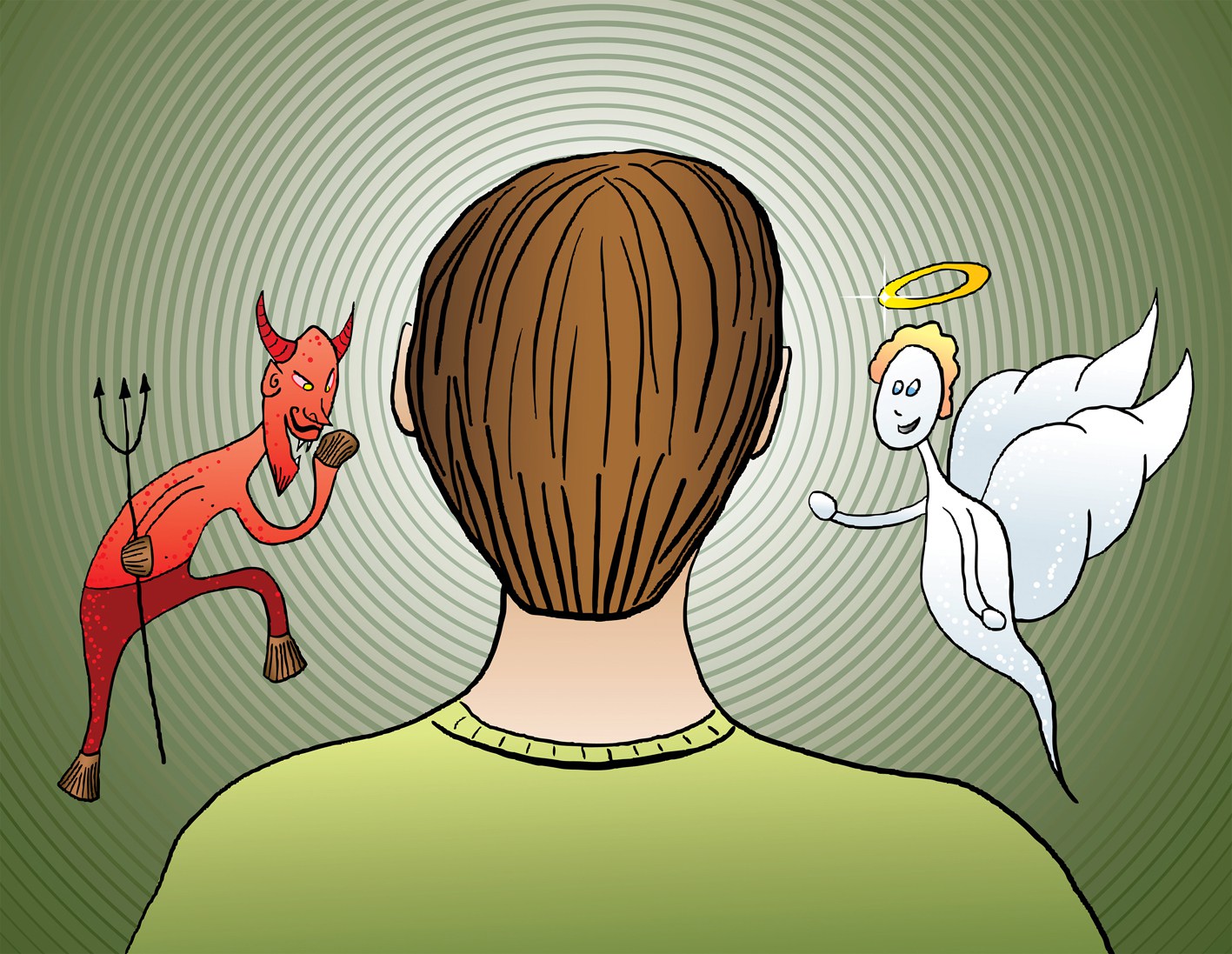And you shall love the Lord your God with both your hearts …
The Hebrew word heart is usually לב/lev, a simple two-letter combination. But – as in the first verse of the ואהבת/ ve’ahavta – this word can also appear in a slightly different form, with a doubled letter bet. Our profession of faith does not read בכל לבך/bekhol libbekha, love God “with all your heart,” but בכל לבבך/bekhol levav’kha. The Sages [Mishna Berakhot 9.5] take that that second bet to refer to a double aspect to ourselves: “love God with both your hearts, your good instinct and your evil instinct.”
The concepts of yetzer hatov and yetzer hara – our “good” and “evil” instincts – are central to rabbinic psychology. Human beings are compounded of both our best and worst drives, sometimes at our most spiritual, most refined, least selfish, and other times at our most, well, complicated: most aggressive, most self-promoting. The yetzer hara is not necessarily morally evil. The term also applies to our natural but sometimes base instincts: for money and power, food, and sex. These drives are not evil, but they do tend to produce troubling behavior.
How, paradoxically, can you love God with your evil instincts? Some interpreters take yetzer hara in the soft version, meaning that you should love God even during natural physical activities, in which your base instincts are in play, as well as in conventionally religious, spiritual or ethical activities, which more obviously call upon your best instincts. When davening Shema and Ve’ahavta, you might reflect on how you can knit these two hearts together into serving God.
Another ingenious interpretation, from a 13th century Spanish sage, R. Yonah Gerondi: yetzer hatov refers to character virtues, especially kindness, and yetzer hara to vices, like cruelty. Most often you serve God with virtues, doing acts of chesed. But occasionally you need to repurpose your vices and use them to do mitzvot. For instance, when confronting evil, you may need to summon up some hard-heartedness, stony and unforgiving toughness. When davening Shema, you might reflect on bringing the whole repertoire of your character into loving God. You certainly have character flaws and the capacity for bad behavior. The question is: can you find ways to get some goodness out of those otherwise bad traits?
The early Hasidic master, R. Dov Ber, the “Maggid of Mezritch” [d. 1772], interpreted similarly. Drawing on a common motif, the Maggid explains why God loves people more than angels. Heavenly beings are boring: all good, lacking any free will, lacking any capacity for rebellion or struggle, obedient by definition. They’re luminous robots.
But people, who “dwell in the clay houses” of our bodies, are all struggle and drama. Those who love God with our evil instincts find ways to transform those very traits that give us the most problems into worship. We “turn darkness to light and bitterness to sweetness,” and make even real evil into “a throne for the good.” In a daring application, very characteristic of early Hasidic mysticism, the Maggid describes compares loving God to human eros: “To truly serve with both your hearts, take love and desire – the forces of the yetzer hara – and apply them to worshipping God. Let your heart be enflamed with exactly that same love and desire.”
The Maggid has a profoundly optimistic spiritual psychology: even the worst part of you can contribute to your spiritual development. Even bitter fruit contains sweet juice. When you daven Shema and Ve’ahavta, ask yourself: how can I turn my most challenging traits, the very instincts which produce bad behavior, into engines for the good? How can I find success hiding in failure?





